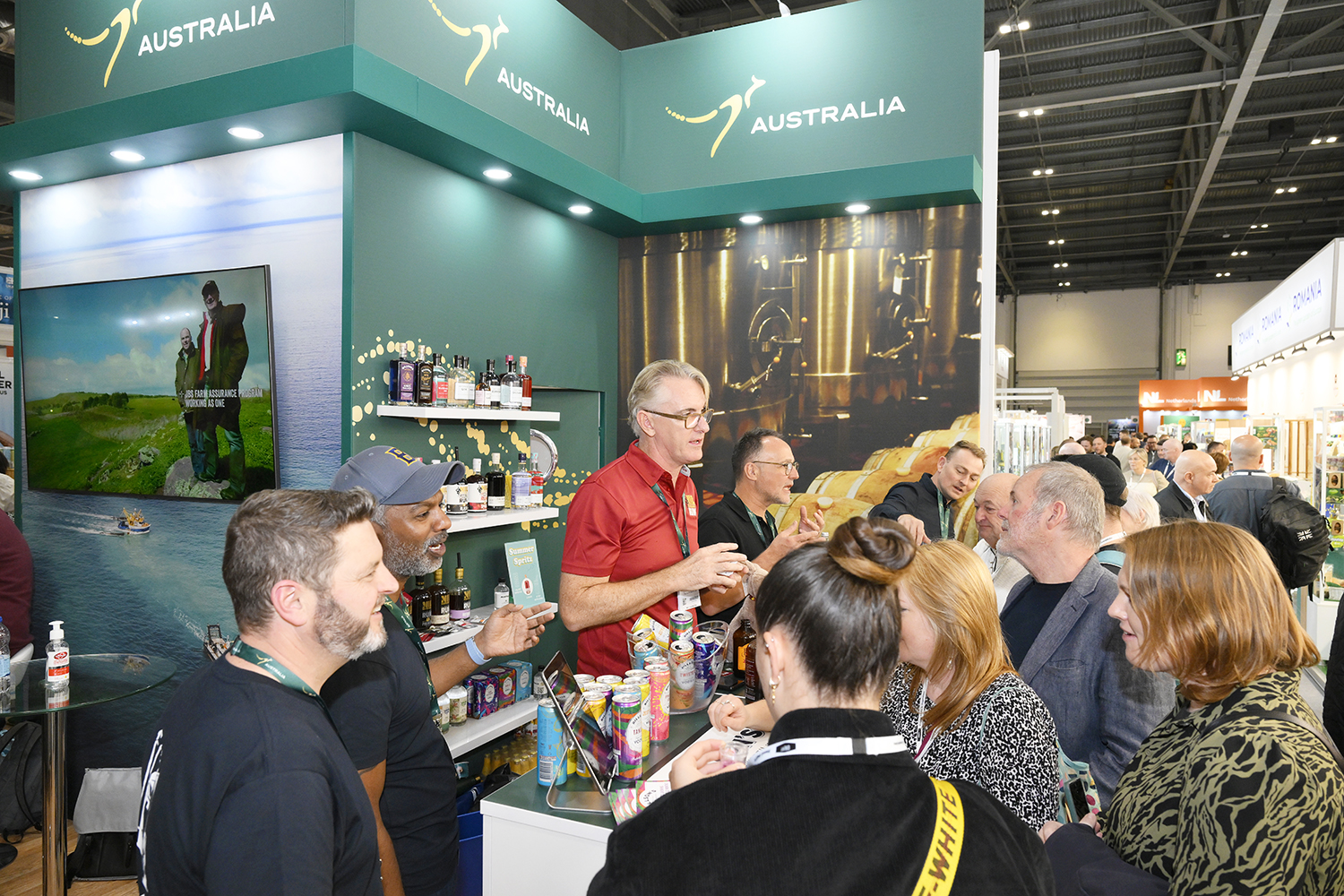What you need to know about the alcohol duty reform
By Eloise FeildenWith the new alcohol duty reform coming into force, what changes are being made and how are they impacting the trade?

An overhaul of the current duty system on alcohol is set for 1 August 2023, which will see all alcoholic drinks taxed based on their alcohol by volume (ABV), meaning that beverages with a higher alcoholic percentage will be subject to higher rates.
This replaces the current Alcohol Duty system, which consists of four separate taxes covering beer, cider, spirits, wine and made-wine.
The reform was first proposed by Rishi Sunak in 2021 during his time as Chancellor, and has been met with continuous backlash from industry bodies and professionals who claim the new system treats wine and spirits unfairly.
After freezes on alcohol duty were implemented last year, the deadline for the reform to come into play is just weeks away, despite recent pleas from the trade that it is “not too late to scrap these crippling duty hikes”.
So what will the new system look like?
The new system will create six standardised alcohol duty bands across all types of alcoholic products and apply to all individuals and businesses involved in the manufacture, distribution, holding and sale of alcoholic products across the UK.
Low strength drinks below 3.5% ABV will be charged at a new lower rate of duty, which the Government says will encourage the growth of health-conscious consumption.
Duty rates have been outlined by the Government in the below tables, with table 2 outlining some of the exemptions for drinks between 3.5% and 8.5% ABV.
Table 1
| Alcoholic strength of alcoholic product | Rate of duty per litre of alcohol in the product |
|---|---|
| Less than 1.2% | £0 |
| At least 1.2% but less than 3.5% | £9.27 |
| At least 3.5% but less than 8.5% | See Table 2 |
| At least 8.5% but not exceeding 22% | £28.50 |
| Exceeding 22% | £31.64 |
Table 2
| Description of alcoholic product (of an alcoholic strength of at least 3.5% but less than 8.5%) | Rate of duty per litre of alcohol in the product |
|---|---|
| Still cider or Sparkling cider of an alcoholic strength not exceeding 5.5% | £9.67 |
| Beer | £21.01 |
| Spirits, wine, and other fermented products; or Sparkling cider of an alcoholic strength exceeding 5.5% | £24.77 |
The UK Government has also stipulated a Small Producer Relief scheme and a Draft Relief scheme designed to assist SME producers in the UK as well as draft cider and beer makers with the rule changes.
What is Small Producer Relief?
These reforms will replace and extend the existing Small Brewers Relief scheme. All small businesses that produce any alcoholic products with an ABV of less than 8.5% will be eligible for reduced rates on qualifying products, if they produce less than 4,500 hectolitres per year.
What is Draft Relief?
Within the reform system the Government is implementing a reduced rate for draught products, which it argues will support the hospitality industry and “recognise the vital role played by pubs in our communities”.
Draught Relief will reduce alcohol duty on qualifying beer and cider by 9.2%, and by 23% on qualifying wine-based, spirits-based and other fermented products, sold in on-trade premises such as pubs and restaurants.
According to Gov.uk, the reform will mean that every pint in every pub across the UK will pay less duty than their supermarket equivalent, in line with the government’s Brexit Pubs Guarantee.
What is happening with wine?
As part of the duty reform, wine will be taxed incrementally, by 0.5% ABV, between 11.5% and 14.5%. However, these changes will come into play at a later date, on 1 February 2025.
In the meantime, temporary arrangements will be in place for 18 months from 1 August 2023 until 1 February 2025 which will see all wines between 11.5% and 14.5% ABV taxed as if they are 12.5% in strength — a temporary duty increase of £0.44 per 75cl bottle. The Government argues that this has been done to support wine producers and importers in moving to the new method of calculating duty on their products. After 1 February 2025 will be split into sub-categories with differing duty rates.
Partner Content
Producers have argued that the temporary measures unfairly preference higher alcohol wines as those between 11.5% and 12.5% ABV will be taxed at a higher percentage for the time being.
*To help break down the duty changes coming into effect next month, here is a table of the changes:
| New wine duty rates August 2023 | Wine | ||||
| Duty rate/ltr of alcohol | ABV | Excise per 75cl | Current | Change | Change% |
| 24.77 | 3.5% | £0.65 | 0.95 | -£0.30 | -31% |
| 24.77 | 4.0% | £0.74 | 0.95 | -£0.20 | -21% |
| 24.77 | 4.5% | £0.84 | 0.95 | -£0.11 | -12% |
| 24.77 | 5.0% | £0.93 | 0.95 | -£0.02 | -2% |
| 24.77 | 5.5% | £1.02 | 2.23 | -£1.21 | -54% |
| 24.77 | 6.0% | £1.11 | 2.23 | -£1.12 | -50% |
| 24.77 | 6.5% | £1.21 | 2.23 | -£1.02 | -46% |
| 24.77 | 7.0% | £1.30 | 2.23 | -£0.93 | -42% |
| 24.77 | 7.5% | £1.39 | 2.23 | -£0.84 | -38% |
| 24.77 | 8.0% | £1.49 | 2.23 | -£0.74 | -33% |
| 28.50 | 8.5% | £1.82 | 2.23 | -£0.41 | -19% |
| 28.50 | 9.0% | £1.92 | 2.23 | -£0.31 | -14% |
| 28.50 | 9.5% | £2.03 | 2.23 | -£0.20 | -9% |
| 28.50 | 10.0% | £2.14 | 2.23 | -£0.09 | -4% |
| 28.50 | 10.5% | £2.24 | 2.23 | £0.01 | 1% |
| 28.50 | 11.0% | £2.35 | 2.23 | £0.12 | 5% |
| 28.50 | 11.5% | £2.67 | 2.23 | £0.44 | 20% |
| 28.50 | 12.0% | £2.67 | 2.23 | £0.44 | 20% |
| 28.50 | 12.5% | £2.67 | 2.23 | £0.44 | 20% |
| 28.50 | 13.0% | £2.67 | 2.23 | £0.44 | 20% |
| 28.50 | 13.5% | £2.67 | 2.23 | £0.44 | 20% |
| 28.50 | 14.0% | £2.67 | 2.23 | £0.44 | 20% |
| 28.50 | 14.5% | £2.67 | 2.23 | £0.44 | 20% |
| 28.50 | 15.0% | £3.21 | 2.23 | £0.98 | 44% |
| 28.50 | 15.5% | £3.31 | 2.98 | £0.33 | 11% |
| 28.50 | 16.0% | £3.42 | 2.98 | £0.44 | 15% |
| 28.50 | 16.5% | £3.53 | 2.98 | £0.55 | 18% |
| 28.50 | 17.0% | £3.63 | 2.98 | £0.65 | 22% |
| 28.50 | 17.5% | £3.74 | 2.98 | £0.76 | 26% |
| 28.50 | 18.0% | £3.85 | 2.98 | £0.87 | 29% |
| 28.50 | 18.5% | £3.95 | 2.98 | £0.97 | 33% |
| 28.50 | 19.0% | £4.06 | 2.98 | £1.08 | 36% |
| 28.50 | 19.5% | £4.17 | 2.98 | £1.19 | 40% |
| 28.50 | 20.0% | £4.28 | 2.98 | £1.30 | 43% |
| 28.50 | 20.5% | £4.38 | 2.98 | £1.40 | 47% |
| 28.50 | 21.0% | £4.49 | 2.98 | £1.51 | 51% |
| 28.50 | 21.5% | £4.60 | 2.98 | £1.62 | 54% |
| 28.50 | 22.0% | £4.70 | 2.98 | £1.72 | 58% |
Under the new measures the duty on sparkling wines will be reduced whereas fortified wines will suffer an increase in duty of up to 58%.
Hal Wilson, managing director of Cambridge Wine Merchants, told the drinks business that changing the costs and selling prices of so many products has been a “huge administrative issue” for his independent business, “after having done that already this year because of sharp increases in costs that were not tax related”.
“The complexity of effecting the changes is only matched by the difficulty of explaining the changes to customers,” he said.
And he is not alone in lamenting the incoming reforms.
A Majestic spokesperson told db: “The looming increase in alcohol duty will be damaging not just for the wine sector, but the wider UK economy. As always, we will do all we can as a business to source the best quality wines at the best possible prices for our customers, but this policy will inevitably lead to increased prices for our retail customers and the thousands of pubs, bars and restaurants we supply in the on-trade – dealing another hammer blow to a fragile hospitality sector that is still recovering from the Covid-19 pandemic.
“This will have a huge impact on inflation at a time when the Treasury is trying to bring rising prices under control. Amid all the talk of the Australian team acting against the spirit of cricket, the Treasury is acting against the spirit of our free-trade agreement with Australia by implementing a policy that will hike the price of their wines. It sends an incredibly confusing message to British consumers at a time when they desperately need security and stability.”
Indeed, Wilson highlighted the challenges faced by hospitality businesses hit by “increases in labour, food and energy costs”, calling the duty increases “a body blow”.
“Again we have no alternative but to pass on the increases, as margins are too small to allow wholesalers to absorb them,” he said.
And with just a few weeks to go until the changes, a U-turn on the duty reform looks to be unlikely.
“I suppose there is still time for a delay, though we are carrying out all the work in the expectation that that won’t happen,” Wilson commented.
*Correction: the table featured in this article has been corrected following publication.
Related news
Freixenet celebrates Mother's Day with multi-channel activations
Why the wine rarely vanishes – the truth about cooking with alcohol




